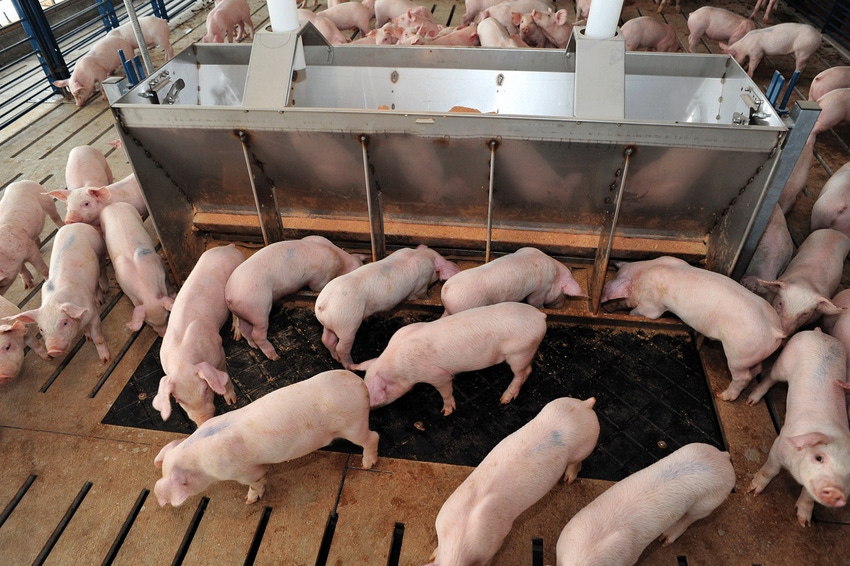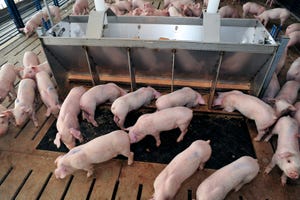KSU study aims to boost available calcium, phosphorus in pigs' diets
Research team is testing commercial feed additives of phytase – an enzyme that aids in releasing phosphorus in a form available to the animal.
May 20, 2022

In this video from Kansas State University Research and Extension, animal scientist Joel DeRouchey explains a study that aims to increase the availability of calcium and phosphorus in pigs' diets in order to improve their growth, feed efficiency and bone integrity.
The research team, he says, is testing commercial feed additives of phytase – an enzyme that aids in releasing phosphorus in a form available to the animal – to better understand its potential effect on the pig's growth.
"By putting phytase into the diet, the pig has the ability to break down more of the phosphorus in its digestive system, absorb it, and use it for growth, feed efficiency and bone integrity," DeRouchey says.
Corn and soybean meal – two common ingredients in swine diets – provide only 14% and 30% available phosphorus.
"Thus what the pig is not able to digest, they simply excrete through manure, and that gets applied in the environment," he says. "It's a good renewable resource for fertilizer, but we want the pig to utilize calcium and phosphorus to a higher degree."
More information on swine nutrition on health is available online from K-State Research and Extension.
You May Also Like



